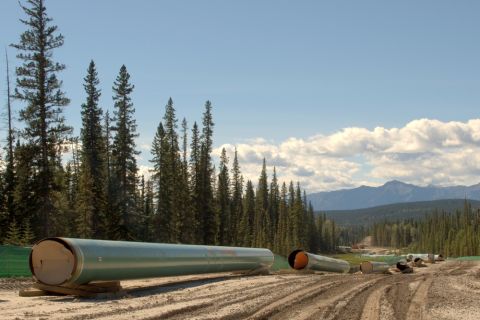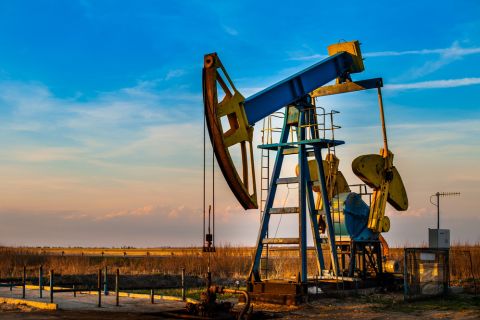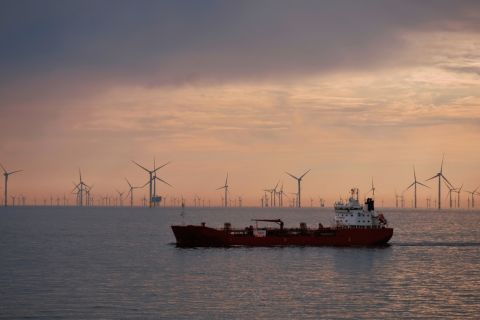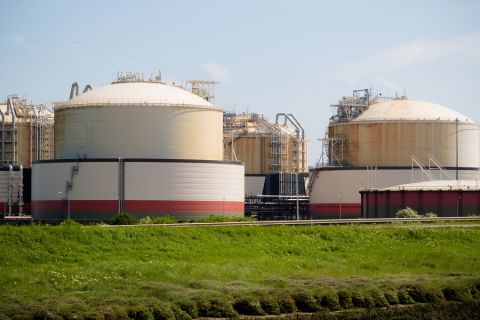The European Union should extend a target to cut gas demand in response to lost supply from Russia by at least six months to October this year to ensure there is enough for next winter, think tank Bruegel said on Feb. 2.
EU countries agreed last year to reduce natural gas demand by 15% between Aug. 1, 2022 and March 31, 2023, compared with the average of the same period in the previous five years.
This demand-reduction target should be extended, Bruegel, which provides analysis to policymakers in the EU, said.
"Assuming limited Russian exports continue, and weather conditions are typical, demand up to Oct. 1, 2023 must remain 13% lower than the previous five-year average," Bruegel said.
Bruegel's analysis showed that if Russian gas transit through Ukraine was to halt, demand savings would need to rise to 17% and extend to 20% in the event of all Russian pipeline gas exports ceasing, including via Turkey.
These cuts would contribute to achieving an EU gas storage target requiring tanks to be 90% full by Oct. 1 this year, the Bruegel analysts said.
EU gas storage is currently at an unusually high level of 71% full and is unlikely to be fully depleted by the end of this winter (2022/23), they added.
In 2022, the EU reduced gas demand by approximately 500 terawatt hours (TWh), or 12% of the 2019-21 average, the analysts said.
Gas savings in the power sector were only 2% last year due to weak nuclear and hydro output, but should improve this year as French nuclear output returns, the analysts said.
Meanwhile, the start-up of new infrastructure to import liquefied natural gas (LNG) in Germany and the Netherlands has improved the EU's ability to diversify supply, they added.
The 27-nation bloc imports the bulk of its gas.
Policymakers should underpin future demand reduction targets by encouraging a structural shift away from gas, they suggested.
This should include support for rapid deployment of renewable energy and grid infrastructure, energy-efficiency measures and decarbonisation of home heating and industry processes.
Recommended Reading
Imperial Expects TMX to Tighten Differentials, Raise Heavy Crude Prices
2024-02-06 - Imperial Oil expects the completion of the Trans Mountain Pipeline expansion to tighten WCS and WTI light and heavy oil differentials and boost its access to more lucrative markets in 2024.
What's Affecting Oil Prices This Week? (Feb. 5, 2024)
2024-02-05 - Stratas Advisors says the U.S.’ response (so far) to the recent attack on U.S. troops has been measured without direct confrontation of Iran, which reduces the possibility of oil flows being disrupted.
McKinsey: US Output Hinges on E&P Capital Discipline, Permian Well Trends
2024-02-07 - U.S. oil production reached record levels to close out 2023. But the future of U.S. output hinges on E&P capital discipline and well-productivity trends in the Permian Basin, according to McKinsey & Co.
Veriten’s Arjun Murti: Oil, Gas Prospectors Need to Step Up—Again
2024-02-08 - Arjun Murti, a partner in investment and advisory firm Veriten, says U.S. shale provided 90% of global supply growth—but the industry needs to reinvent itself, again.
Venture Global, Grain LNG Ink Deal to Provide LNG to UK
2024-02-05 - Under the agreement, Venture Global will have the ability to access 3 million tonnes per annum of LNG storage and regasification capacity at the Isle of Grain LNG terminal.





